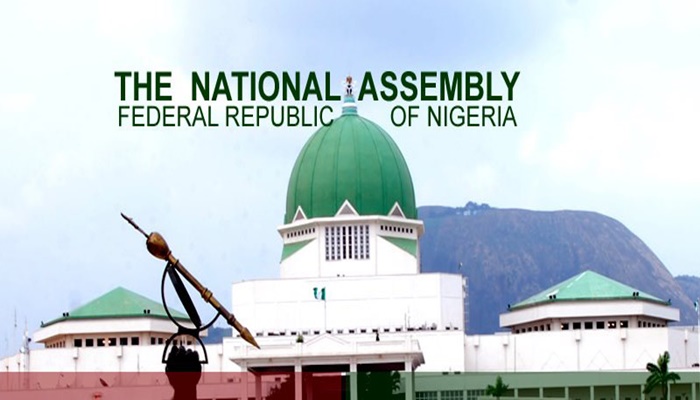BudgIT uncovers 11,122 projects insertions worth N6.93trn by National Assembly in 2025 FG Budget

BudgIT , a prominent civic tech organisation promoting transparency and accountability in Nigeria’s
public finance ,has uncovered 11,122 projects valued at N6.93 trillion inserted by the National Assembly into the 2025 Federal Government Budget.
According to the body, “What began as isolated irregularities has,over the years, evolved into a deeply entrenched culture of exploitation and abuse,with the budget process now a playground for self serving political interests, led by top ranking members of the National Assembly.
“Our analysis reveals that 238 projects valued above N5 billion each, with a cumulative value of N2.29trillion, were inserted with little or no justification.984 projects worth N1.71trillion and 1,119 projects within the range of N500 million to N1 billion, totaling N641.38 billion,were
priorities.
“These insertions,far from promoting development, appear tailored to satisfy narrow indiscriminately inserted, raising questions about the irrelevance and alignment with national
political interests and personal gains rather than the citizens’ interests.
“A closer look shows that 3,573 projects worth N653.19 billion are assigned directly to federal the most glaring anomalies include:1,477 streetlight projects worth N393.29 billion; 538 boreholes totalling N114.53billion;2,122 ICT projects valued at N505.79 billion; and N6.74
constituencies and 1,972 projects worth N444.04 billion to senatorial districts.Categorically, some of
billion earmarked for “empowerment of traditional rulers”
“Shockingly, 39%of all insertions—4,371projects worth N1.72 trillion—were forced into The Ministries of Science and Technology and Budget and Economic Planning also saw bloated Ministry of Agriculture’s budget, inflating its capital allocation from N242.5 billion to N1.95 trillion allocations of N994.98 billion and N1.1trillion, respectively, from insertions alone.
“Even more concerning is the targeted misuse of agencies like the Nigerian Building and Road politically motivated projects.These agencies lack the technical capacity to execute such projects, Research Institute (Lagos) and the Federal Cooperative College, Oji River, as dumping grounds for
leading to rampant under performance and waste. For Example, the Federal Cooperative College, Oji River—at raining institution was saddled with: N3 billion for utility vehicles to support farmers and distribution agents; N1.5 billion for rural electrification in Rivers State; and N1 billion for solar.
The organisation’s latest analysis paints a troubling picture of Nigeria’s budgeting process, one it says has become a “playground for self-serving political interests.”
These insertions, according to a statement released by BudgIT on Tuesday, were made with little to no justification, undermining national planning and diverting funds away from essential development priorities.
Of particular concern are 238 projects each valued above N5 billion, totalling N2.29 trillion, and another 984 projects worth N1.71 trillion. BudgIT also flagged 1,119 projects within the range of N500 million to N1 billion, together worth over N641 billion, as largely indiscriminate and politically motivated.
“The insertion of over 11,000 projects worth N6.93 trillion into the 2025 budget by the National Assembly is not just alarming, it is an assault on fiscal responsibility,” said Gabriel Okeowo, BudgIT’s country director. “This trend, increasingly normalised, undermines the purpose of national budgeting, distorts development priorities, and redirects scarce resources into the hands of political elites.”
The analysis further highlighted that 3,573 of the inserted projects, worth N653.19 billion, are designated for federal constituencies, while 1,972 projects, valued at N444.04 billion, are tied to senatorial districts.
The list includes 1,477 streetlight projects worth N393.29 billion, 538 borehole projects at N114.53 billion, and 2,122 ICT-related projects totalling N505.79 billion. Also, N6.74 billion was earmarked for the “empowerment of traditional rulers.”
BudgIT expressed shock over the fact that 39 percent of all insertions, 4,371 projects valued at N1.72 trillion, were pushed into the Ministry of Agriculture’s budget, inflating its capital allocation from N242.5 billion to a N1.95 trillion. Other ministries such as Science and Technology and Budget and Economic Planning also saw inflated budgets through insertions alone
Even more troubling, the group said, is the misuse of smaller federal agencies like the Nigerian Building and Road Research Institute in Lagos and the Federal Cooperative College in Oji River, which were used as conduits for projects outside their mandates.
Examples include the Cooperative College being saddled with N3 billion for utility vehicles, N1.5 billion for rural electrification in Rivers State, and N1 billion for solar streetlights in Enugu.
“These are examples of agencies operating outside their mandates, managing projects unrelated to their statutory functions, and adding zero value to national development,” BudgIT stated.
Despite submitting formal letters to the Presidency, the Budget Office, and the National Assembly, BudgIT said it has received no response or indication of accountability from any government institution. “Silence in the face of overwhelming evidence amounts to complicity,” the statement read.
The civic-tech organisation is now calling on the president to demonstrate executive leadership by reforming the budget process and ensuring alignment with Nigeria’s Medium-Term National Development Plan (2021–2025).
The organisation also urged the Attorney General of the Federation to seek a constitutional interpretation of the National Assembly’s appropriation powers, particularly its ability to introduce new capital projects without executive concurrence.
It also appealed to anti-corruption agencies such as the EFCC and ICPC to investigate the inserted projects and track public funds to ensure transparency and accountability.
“Nigeria cannot afford to run a government of projects without purpose. We urgently need transparency, constitutional clarity, and a return to evidence-based planning that puts citizens, not politics, at the centre of the budget,” Okeowo said.
BudgIT called on civil society, the media, development partners, and citizens to demand reform, noting that the issue is not only about financial mismanagement but also about justice, equity, and accountable governance.






